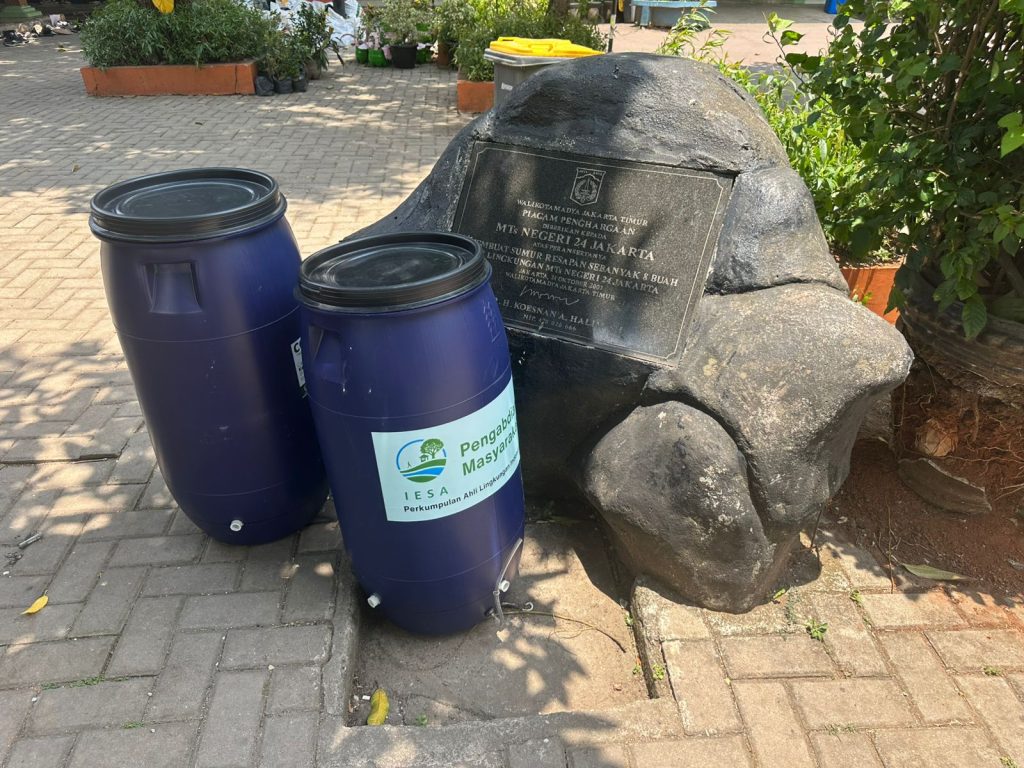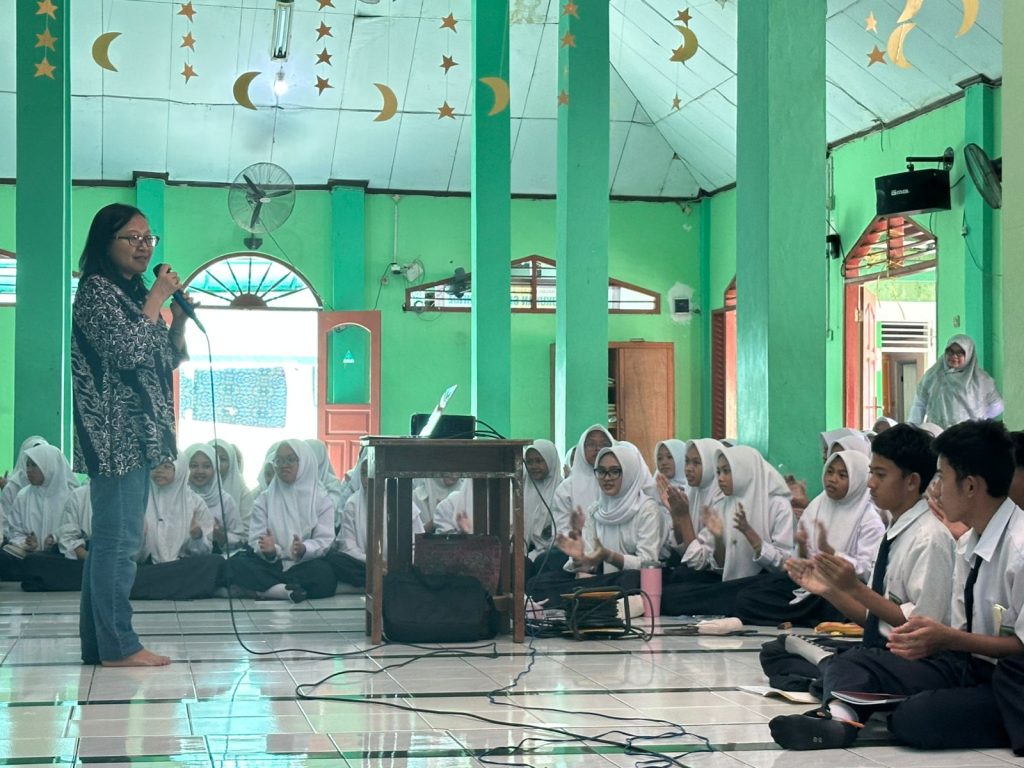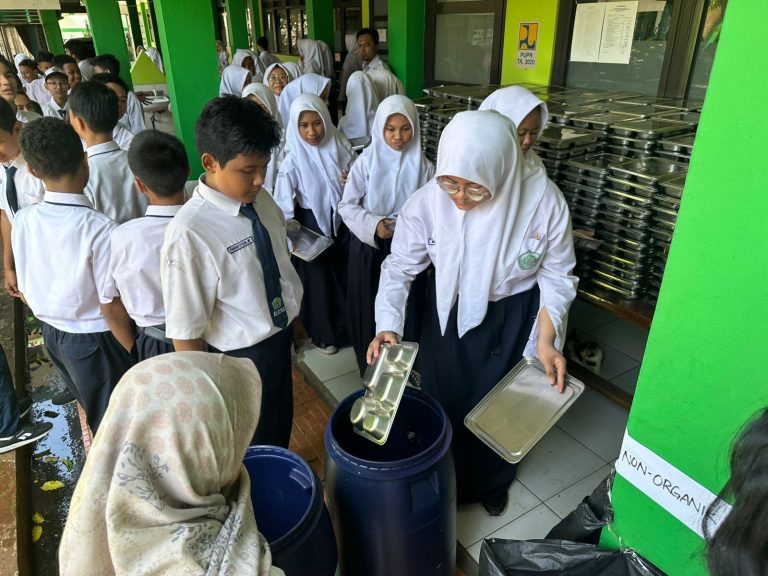Jakarta — The Indonesian Environmental Scientist Association (IESA), together with the School of Environmental Sciences (SIL) at the University of Indonesia (UI), collaborated with junior high school Madrasah Tsanawiyah Negeri (MTsN) 24 Jakarta in an activity themed Eco Madrasah. In a press statement on Wednesday, October 15, IESA said the program aims to foster environmental awareness and sustainable behaviour among madrasah students.
The activity, held at MTsN 24 Jakarta, Penggilingan, Cakung, featured presentations and hands-on training by the IESA and SIL teams for students on waste management related to the government’s Free Nutritious Meals (MBG) program. The students learned about the importance of balanced nutrition and understanding the types of waste, including organic waste like food scraps and inorganic waste such as plastic wrappers.
Through this activity, they were invited to practice processing organic waste using composters provided by IESA and SIL to produce compost and liquid fertiliser. In addition, students were introduced to making kitchen waste bins to separate food waste, inorganic waste, and temporary residues.

“IESA hopes that waste from the MBG program can be managed without leaving any residue, by utilising it as fertiliser and recycling inorganic waste to support the circular economy,” said IESA Chairperson Lina Tri Astuti.
During the activity, students enthusiastically participated in interactive learning through various creative methods, such as a nutrition snakes and ladders game, waste sorting activities, and an Eco Craft workshop. With the help of post-it notes and educational images, students were encouraged to think critically, collaborate, and innovate in finding solutions to environmental issues around them.

Environmental experts from IESA and SIL emphasise the importance of instilling ecological responsibility from an early age. “In addition to learning about the importance of balanced nutrition—such as chewing food properly—we hope that children will also learn not to waste food and to process waste so that it can be reused for the benefit of the earth,” explained Prisca Delima, a researcher and lecturer at SIL UI.
The IESA and SIL teams expressed their hope that MTsN 24 Jakarta could start a waste sorting system coordinated and supervised by teachers on duty. “After eating, students can immediately sort and dispose of waste according to type, so that a sense of responsibility for cleanliness and the environment can grow,” added Wezia Berkademi.
The Eco Madrasah program at MTsN 24 Jakarta is scheduled to run until October 21, 2025, with a series of follow-up activities, including Eco Craft Workshops and Eco Madrasah Discussions. (nsh)
Banner photo: Students at MTsN 24 Jakarta learn to sort MBG waste. (Source: IESA)
Update, 15 Oct. 2025, 12.17 – revising the correct position of IESA Chairperson. 16 Oct. 2025, 07.00 – revising correct position of IESA Chairperson in photo.















